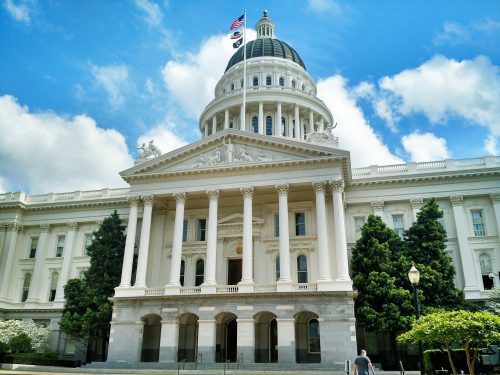
California Legislature passes distributed generation bills
These bills, if signed into law, will result in major changes to several state energy policies.
A number of key energy bills that will affect California’s DG market have passed the Legislature and await Governor Brown’s signature.
Senate Bill (SB) 43, known as the Green Tariff Shared Renewables Program, requires the state’s three major investor owned utilities (IOUs) to offer customers the option to subscribe to a specific percentage of renewable energy that is generated from within the applicable IOU’s service territory. The new program, authored by Senator Lois Wolk and supported by many solar advocates, calls for the deployment of an additional 600 MW of WDG – 100 MW of which must be in projects of 1 MW or smaller and sited in disadvantaged communities.
AssemblyBill (AB) 327, if signed into law, will result in major changes to several state energy policies. First and foremost, the bill lifts the Renewable Portfolio Standard (RPS) cap and allows the California Public Utilities Commission (CPUC) to require that IOUs procure more renewables than the current 33% RPS. Although the bill does not specifically mandate that the CPUC require more renewables, it does create a streamlined pathway to raise the 33% RPS cap. AB 327 also modifies electricity rate design to include a controversial new policy that allows the CPUC to authorize IOUs to charge a fixed fee to customers for grid expenses – regardless of how much energy a customer uses. Net metering advocates oppose this element of the policy as any grid charge would reduce the economic benefits of net metered projects (note that WDG projects are not impacted by such grid charges). Conversely, AB 327 contains significant wins for net metering advocates. The bill clarifies and extends the current net metering policy while creating a framework for a new policy after 2017.
Importantly, the Clean Coalition scored a huge win in AB 327. The bill includes a section on planning and grid preparation for distributed resources – like DG, energy efficiency, energy storage, electric vehicles, and demand response – that draws from policy innovations promoted by the Clean Coalition for the past three years. Specific Clean Coalition victories within AB 327 include the following new requirements:
- IOUs must submit plans to the CPUC that identify optimal locations for the deployment of distributed resources.
- The IOU plans must reflect locational benefits of DG and other distributed resources.
- Any spending on the distribution grid needed to accomplish the distributed resources plan must be included in the next general rate case.
The Clean Coalition is looking forward to working with the CPUC and the California Energy Commission (CEC) to ensure that utilities leverage the full benefits of DG and Intelligent Grid (IG) solutions and that the utilities’ plans are guided by a comprehensive statewide energy resources strategy.
Lastly, AB 792 grants a new local tax exemption. Certain municipalities in California charge a tax on the consumption of electricity in their jurisdiction, also known as a “utility users tax.” AB 792 simply exempts from the tax any consumed energy that was generated on-site by a clean energy resource, including RPS eligible technologies and several efficiency-oriented resources like fuel cells. While the bill does not benefit WDG, the Clean Coalition broadly supports the removal of barriers to the deployment of DG and IG solutions.

